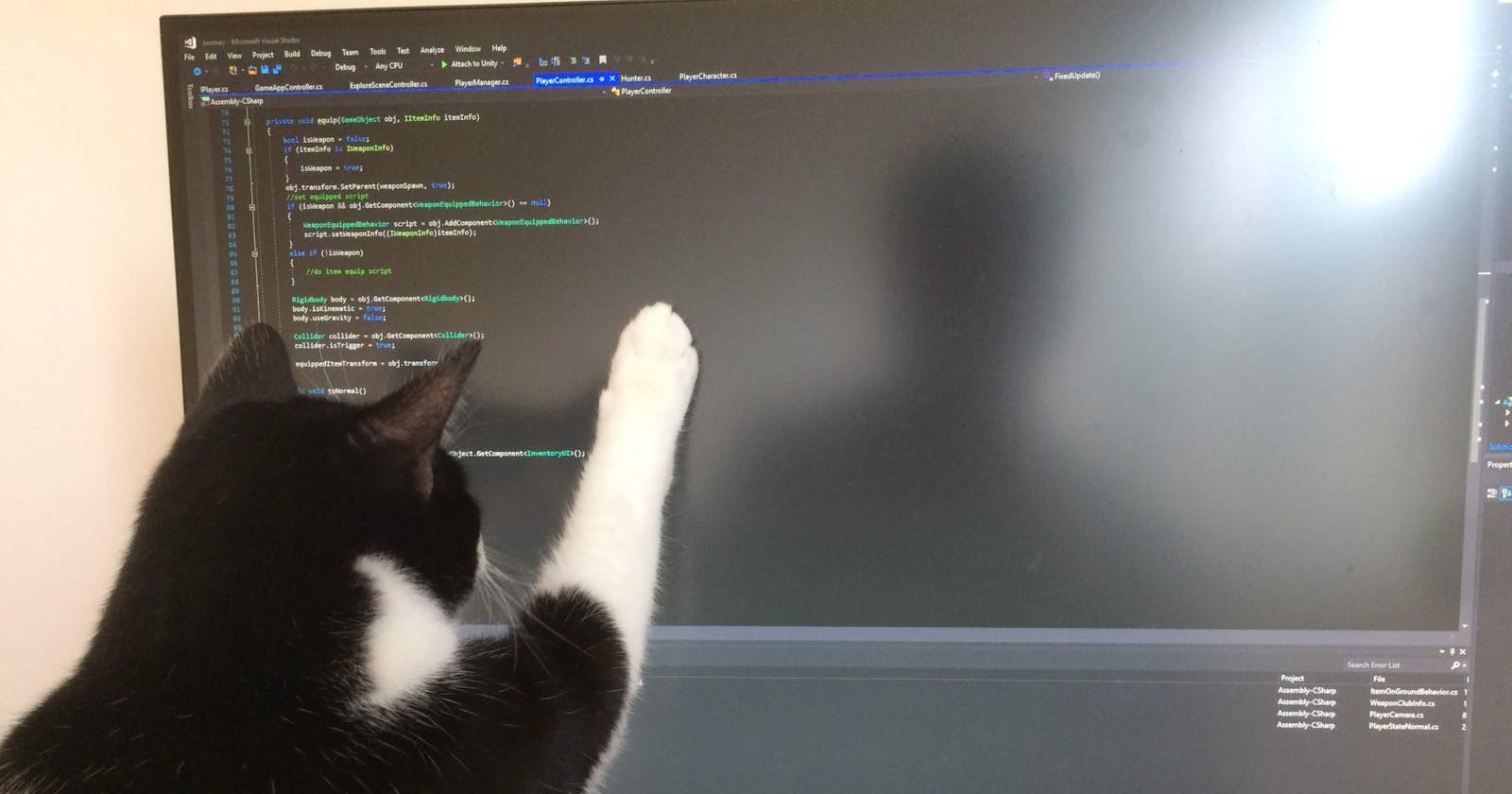Journey to become a tech lead | "It's your life" and "The cat ate my source code"
Notes from "The pragmatic programmer"
It's Your Life.
"I'm not in this world to live up to your expectations and you're not in this world to live up to mine" - Bruce Lee
It is your life. You own it. You run it. You create it.
Does your work environment suck? Is your job boring? Try to fix it. But don't try forever.
"You can change your organization or change your organization" - Martin Fowler.
The Cat Ate My Source Code.
"The greatest of all weaknesses is the fear of appearing weak" - J.B. Bossuet, Politics from Holy Write, 1709.
Take charge of your career, and don't be afraid to admit ignorance or error. It will happen!!!
These things happen, and we try to deal with them as professionally as we can. This means being honest and direct. We can be proud of our abilities, but we must own up to our ignorance and our mistakes.
Team trust.
Above all, your team needs to be able to trust and rely on you, and you need to be comfortable relying on each of them as well. Trust in a team is essential for creativity and collaboration.
In a healthy environment based on trust, you can safely speak your mind.
Take responsibility.
Responsibility is something you actively agree to. You commit to ensuring that something is done right, but you don't necessarily have direct control over every aspect of it.
To do your own personal best, you must analyse the situation for risks that are beyond your control. You have the right not to take on responsibility for an impossible situation or one in which the risks are too great, or the ethical implications too sketchy.
YOU'LL HAVE TO MAKE THE CALL BASED ON YOUR VALUES AND JUDGMENT!
When you make a mistake (AS WE ALL DO) or an error in judgement, admit it honestly and try to offer options.
Don't blame someone or something else, or make up an excuse.
It is up to you to provide solutions, not excuses.
If there was a risk that no one came through for you, then you should have had a contingency plan. Telling your boss "The cat ate my source code" just won't cut it.
PROVIDE OPTIONS, DON'T MAKE LAME EXCUSES.
Before you approach anyone to tell them why something can't be done, is late, or is broken, stop and listen to yourself. Does your excuse sound reasonable or stupid? How's it going to sound to your boss?
Run through the conversation in your mind. What is the other person likely to say? Will they ask, "Have you tried this..." or "Didn't you consider that?" How will you respond? Before you go and tell them the bad news, is there anything else you can try? Sometimes, you just know what they are going to say, so save them the trouble.
Instead of excuses, provide options. Don't say it can't be done; explain what can be done to salvage the situation.
Don't be afraid to ask, or to admit that you need help.
Try to flush out the lame excuses before voicing them aloud. If you must, tell your cat first. After all, if little Tiffles is going to take the blame...
All notes here and text came from the book "The pragmatic programmer". All rights reserved to the authors of the book.
Thomas, D., & Hunt, A. (2019). The pragmatic programmer. Addison-Wesley Professional.
